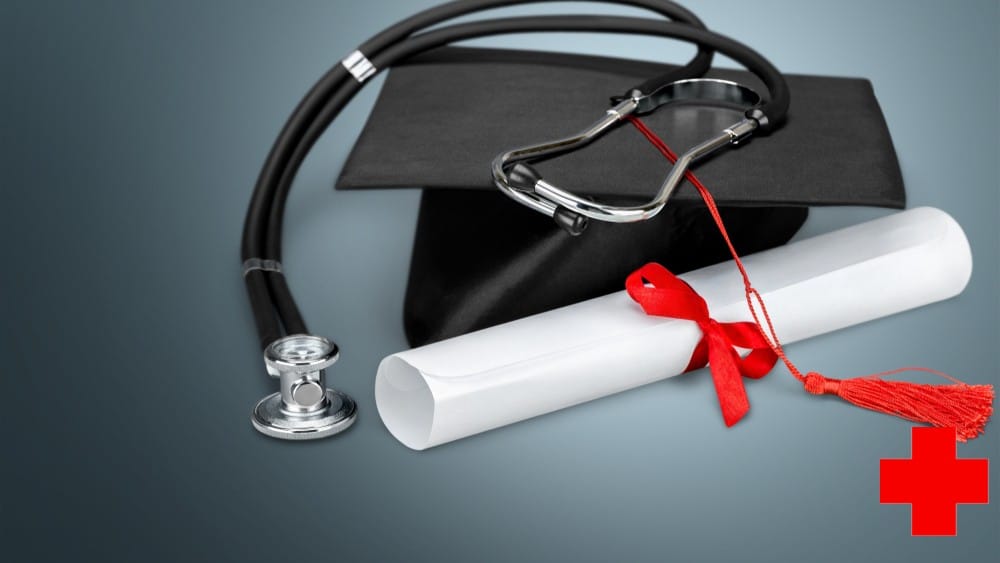Hello and welcome to our guide on writing and polishing your nursing cover letter for your job application.
Stick with us to the end of the article, and we guarantee you will be able to put together a cover letter that can push you in the direction of your dream job.
In this article, we will cover the following topics:
- What is a nursing cover letter?
- What are the parts of a nursing cover letter?
- Tips for writing your nursing cover letter
Without further delay, let’s uncover top nursing cover letter tricks and tips!
What is a nursing cover letter?

The cover letter is a letter to the hiring manager or person in charge of choosing the hire amongst the applicants for a job opening.
The perfect cover letter allows the receiver to envision you in the new job as part of their nursing staff, helping them understand that you are an excellent technical and cultural fit at the healthcare institution.
In this letter, you speak to the hiring manager to explain why you are an excellent fit for the job.
Where the resume covers the objective skills that the applicant must have, the cover letter offers a peek into the personality and thinking process of the candidate.
Sometimes, it could also act as a tie-breaker document if there are many applicants and only one or a few open positions.
In any situation, you should take advantage of the opportunity and create a registered nurse cover letter that will change your mind and lead you to the job you want.
What are the parts of a nursing cover letter?

If you have written a letter meant for the post before, you should be familiar with the typical letter template.
The nursing cover letter, similar to cover letters made for other industries, has the following parts:
Header
The header includes the address of the hiring manager and their contact information and ends with today’s date.
Include the address of the recruiter’s office and phone number.
Salutation
Also called the greeting, here is where you address the person who is meant to read this letter – the hiring manager who determines if you get the job or not.
Ideally, you will have the name and designation of the hiring manager and use that for your salutation – if you do not have a name, it is good to do some research about the hiring team and find a name you can safely address.
It would be best if you only used “Dear Hiring Manager” – which can come off as a bit impersonal – when you do not have any name you can address to.
Introduction
The opening paragraph is dedicated to introducing yourself to the hiring manager.
The first paragraph of any letter is critical to grab the attention of your reader, but in the case of cover letters, it’s fine just to state your name, your current position (or school if you are a fresh entry-level graduate), and the position of interest.
If you started with a different career before nursing or have an unexplained gap in your resume, the cover letter is a great place to address this issue briefly.
You can quickly address any misconceptions and questions your resume may have raised.
The person in charge of hiring will appreciate this transparency.
Keep this section simple as it is just meant to present you in your current position, and the following section will illustrate what you have accomplished.
Key Experiences and Qualifications
Give a quick rundown of your work history and the nursing skills due to these years of experience.
Since you have the resume to talk about your hard skills, take this opportunity to talk about soft skills that are extremely important for working in a nursing position, like:
- patient care,
- problem-solving,
- communication skills,
- teamwork, and more.
You can use this portion to show off the hiring manager’s strengths in their team.
No matter your expertise and department, if you are in pediatric or oncology or work in the ICU, relating your soft skills to your experience thus far can help visualize your capabilities and additions to the team.
If you have a specific accomplishment relevant to the position, you might want to tell that story quickly and what the achievement meant for your previous team.
This is especially helpful for entry-level applicants who might not have much experience to show off just yet.
Career Goals
This section can talk about how your professional and personal goals align with the institution’s own vision and mission.
Show that you have done your research and due diligence about the team and institution and that you can contribute to their continuing success.
You can share some of your future goals – becoming a nurse practitioner in the run of your career, for example – to show that you are dedicated to your mission and are an excellent fit for the organization.
Closing
A fundamental way to close the cover letter is to explain how everything you have mentioned makes you the ideal candidate for the position.
You should reiterate your interest in the role and express your openness to the next steps of the application process.
This helps establish your enthusiasm and readiness to work and learn from the team – but do not overdo it as it may look unprofessional.
Toward the end, you can thank the hiring manager for their time and consideration of your application, and you look forward to furthering communication.
Sign off with a professional greeting – some ideal examples are:
- Regards
- Kind regards
- Best regards
- Sincerely
- Respectfully
- Thank you
Add your name and attach your signature to close off the letter.
Other Notes
Remember to keep the format and fonts of your resume and cover letter consistent, so it’s easy for the hiring team to distinguish these two documents are yours.
If you are not the greatest at formatting or want a more professional-looking set, there are cover letter templates and resume templates that will help you turn in a beautiful application.
Tips for Writing Your Nursing Cover Letter

Some people are more intimidated by the cover letter than the resume.
Here are some cover letter tips to help you make a great first impression and pre-interview with your potential employer.
Remember you are writing to a person
A letter is something that you address to another person.
You must tailor your letter to the hiring manager for the posting.
You should not be robotic as if you are writing for a program that scans for it.
You should do one thing before you start writing to learn more about the person you are writing to.
Do your research on the manager’s position, role, specializations, and values.
You may be able to find some of their pages and blog posts, which could reveal something unique to them.
Find a way to play to their interests subtly – but even if your research comes across as evident, you may be praised for your diligence and for paying attention to the entire application process.
Try using a cover letter builder
Technology has taken us to the point where you can use websites to put together parts of your resume and pump out a decent cover letter.
If you’re stuck with your writing and need some inspiration, free online cover letter builders can help you keep the process moving.
They may even have some nursing cover letter examples for you to check out and consider as you are trying to finish your document.
However, it is not advisable to take these letters at face value – you should always read, check, and improve the writing of the resulting cover letter.
Note that since others may be using the same resume builder as you, there’s a high chance that your cover letters may look and read in a similar manner – which is not a good look.
Always check and personalize any cover letters you submit during your job search.
Check Spelling and Grammer
Unlike the resume, which comprises bullet points that are carefully organized to tell the story of your experience and qualifications, cover letters depend on your writing and communication skills.
It reveals how you write, which may indicate how you speak, how you relate with other people, and how you think critically.
A simple spell check and reread can catch any errors that could throw off your potential employer.
Conclusion

All application processes may not require the nursing cover letter, but it’s a great way to connect with the hiring manager on a human level and explain who you are as a registered nurse and as a person.
The resume and cover letter go hand in hand in painting a picture of your character to a team that has not met you yet.
It is ideal for making a good and robust impression through your cover letter, which adds to your credibility as a reliable nurse and desirable addition to the team.
FAQs

Do you need a cover letter for nursing jobs?
Even when you are not required to send a cover letter, it is a standard inclusion in any application process. It is a great way to include your voice and personality in your application, and you are not likely to be given negative points for sending one in.
What should a nursing cover letter include?
The cover letter should include a header, a greeting, an introduction, a description of your key experiences, and your career goals, and then finish it off with a closing and your signature. You should also add your contact details to ensure they have quick and accessible information to reach you as soon as possible.
How do you write a strong nursing cover letter?
A strong nursing cover letter is comprehensive and persuasive – it is easy to read, but clear passion, goals, and identity support the more objective resume. It should be only one page long but achieve talking about your qualifications that fit the job description and culture of the job and organization.
What are the advantages of having a good nursing cover letter?
A good nursing cover letter is one of the best ways to set yourself apart from the crowd. A memorable letter can give you an edge over equally qualified peers who are also gunning for the same position you are interested in. A good nursing cover letter can become a tie-breaker in your favor.
What is the difference between a resume and a cover letter?
The nursing resume covers the objective experience, education, licensure, certifications, recognitions, and other statistics that describe your capabilities and strengths. In contrast, the nursing cover letter is a more subjective exploration of yourself as an employee and as a person passionate about healthcare.
What is the best greeting for a cover letter?
It is always best to use “Dear [Name of Hiring Manager]” as the cover letter greeting, as it is a professional greeting that acknowledges the person being addressed. However, if you do not know who to address the cover letter to, “Dear Hiring Manager” should be fine.
What should a cover letter not include?
The cover letter shouldn’t include irrelevant details to pad the space. You should also avoid becoming too personal or move on to discussing salary expectations in the cover letter. Always keep the cover letter short, professional, truthful, and easy for humans to read.









